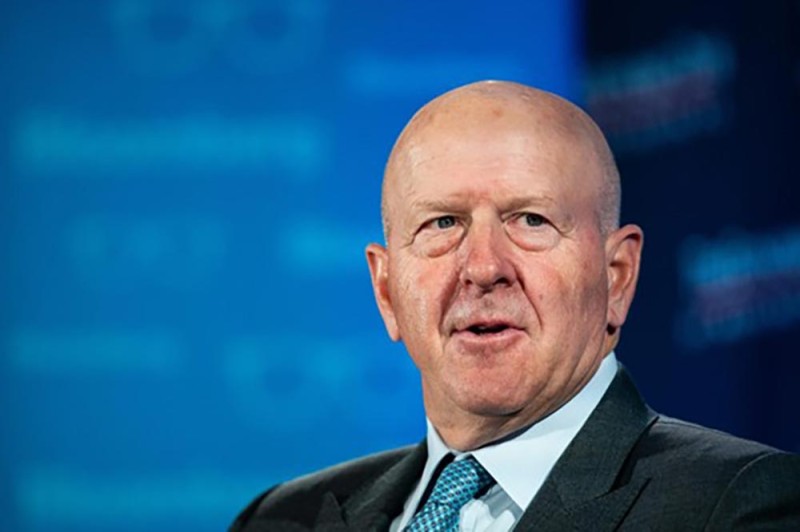
作为华尔街最具影响力与传奇色彩的机构之一,高盛集团首席执行官大卫·所罗门并不认同人工智能即将引发就业末日的观点。
在接受美国有线电视新闻网(CNN)采访时,所罗门对近期因人工智能相关裁员潮而引发的广泛焦虑提出质疑——这种焦虑从普通求职者蔓延至美联储主席杰罗姆·鲍威尔(Jerome Powell)。这位首席执行官表示,尽管技术变革速度可能比往常更快,但类似的场景早已上演。
“颠覆必然会发生,但我坚信我们的经济体系极具敏捷性与灵活性。纵观数百年来涌入社会的各类技术,人类总能适应,”所罗门说道,“我们会开拓新业务、创造新岗位。我认为这次也不例外。”
近期人工智能相关裁员事件中,最受关注的当属亚马逊上周裁减1.4万名员工。在该公司当季财报电话会议上,首席执行官安迪·贾西(Andy Jassy)表示,此次裁员“甚至并非由人工智能驱动,至少目前不是”。尽管如此,贾西在今年早些时候曾发出警告,得益于人工智能带来的效率提升,亚马逊未来所需人力将会缩减。
其他人工智能相关裁员还包括Meta人工智能部门裁员600人、赛富时(Salesforce)为启用人工智能代理而裁撤数千个客服岗位。此外,微软今年早些时候裁员9000人;首席执行官萨蒂亚·纳德拉(Satya Nadella)表示,公司未来会增加岗位,但“与人工智能技术普及前的人员规模相比,新增岗位将带来更高的效益产出”。
尽管这些裁员事件频频登上头条,但上周高盛投资银行家的一项调查显示,仅有11%的客户因人工智能技术而主动采取裁员措施。
但同一项调查发现,企业在核心业务流程中采用人工智能工具的趋势正不断升温。投资银行家发现,其覆盖房地产、科技、金融等行业的客户中,已有37%将人工智能用于常规生产。银行家预计,未来一年内超半数客户将效仿这一做法,三年内将有74%的企业将人工智能融入业务。
所罗门表示,企业实施人工智能可能意味着白领岗位减少,但这些岗位会在经济其他领域得到补充。
不过所罗门也指出,对人工智能日益高涨的热情对经济而言可能是把双刃剑。尽管他此前并未将近期人工智能市场的繁荣定性为“泡沫”,但他警告称,与以往的技术变革浪潮一样,并非所有人都能成为赢家。
“这项技术令人振奋,人们理应对它充满热情,”所罗门表示,“但发展过程中也会遇到波折。”(*)
译者:中慧言-王芳
作为华尔街最具影响力与传奇色彩的机构之一,高盛集团首席执行官大卫·所罗门并不认同人工智能即将引发就业末日的观点。
在接受美国有线电视新闻网(CNN)采访时,所罗门对近期因人工智能相关裁员潮而引发的广泛焦虑提出质疑——这种焦虑从普通求职者蔓延至美联储主席杰罗姆·鲍威尔(Jerome Powell)。这位首席执行官表示,尽管技术变革速度可能比往常更快,但类似的场景早已上演。
“颠覆必然会发生,但我坚信我们的经济体系极具敏捷性与灵活性。纵观数百年来涌入社会的各类技术,人类总能适应,”所罗门说道,“我们会开拓新业务、创造新岗位。我认为这次也不例外。”
近期人工智能相关裁员事件中,最受关注的当属亚马逊上周裁减1.4万名员工。在该公司当季财报电话会议上,首席执行官安迪·贾西(Andy Jassy)表示,此次裁员“甚至并非由人工智能驱动,至少目前不是”。尽管如此,贾西在今年早些时候曾发出警告,得益于人工智能带来的效率提升,亚马逊未来所需人力将会缩减。
其他人工智能相关裁员还包括Meta人工智能部门裁员600人、赛富时(Salesforce)为启用人工智能代理而裁撤数千个客服岗位。此外,微软今年早些时候裁员9000人;首席执行官萨蒂亚·纳德拉(Satya Nadella)表示,公司未来会增加岗位,但“与人工智能技术普及前的人员规模相比,新增岗位将带来更高的效益产出”。
尽管这些裁员事件频频登上头条,但上周高盛投资银行家的一项调查显示,仅有11%的客户因人工智能技术而主动采取裁员措施。
但同一项调查发现,企业在核心业务流程中采用人工智能工具的趋势正不断升温。投资银行家发现,其覆盖房地产、科技、金融等行业的客户中,已有37%将人工智能用于常规生产。银行家预计,未来一年内超半数客户将效仿这一做法,三年内将有74%的企业将人工智能融入业务。
所罗门表示,企业实施人工智能可能意味着白领岗位减少,但这些岗位会在经济其他领域得到补充。
不过所罗门也指出,对人工智能日益高涨的热情对经济而言可能是把双刃剑。尽管他此前并未将近期人工智能市场的繁荣定性为“泡沫”,但他警告称,与以往的技术变革浪潮一样,并非所有人都能成为赢家。
“这项技术令人振奋,人们理应对它充满热情,”所罗门表示,“但发展过程中也会遇到波折。”(*)
译者:中慧言-王芳
David Solomon, CEO of Goldman Sachs, one of the most influential and storied Wall Street firms, isn’t convinced an AI jobs apocalypse is on its way.
In an interview with CNN, Solomon questioned the impact of the AI-linked layoffs that have recently caused widespread anxiety, from average job seekers to Federal Reserve Chair Jerome Powell. While technological change may be moving faster than usual, we’ve seen this story before, the CEO said.
“There will be disruption. But I’m a big believer that our economy is very nimble, very flexible. And when you look at the technology that has flooded over hundreds of years into our society, we adapt,” Solomon said. “We find new businesses. We find new jobs. I don’t believe it will be different this time.”
The most recent of these AI-linked layoffs arguably includes the 14,000 employees cut by Amazon last week. During the company’s quarterly earnings call that week, CEO Andy Jassy said the job cuts were “not even really AI-driven, not right now at least.” Still, Jassy earlier this year warned Amazon will not need as many employees in the future thanks to AI efficiency gains.
Other AI-linked layoffs include those at Meta, which cut 600 jobs in its AI division, as well as Salesforce, which cut thousands of customer-service jobs in favor of AI agents. Finally, Microsoft cut 9,000 jobs earlier this year; CEO Satya Nadella said the company will add jobs in the future, but “with a lot more leverage than the headcount we had pre-AI.”
While many of these layoffs have grabbed headlines, a survey of Goldman Sachs investment bankers last week found only 11% of clients are actively cutting jobs because of AI.
But the same survey found companies’ adoption of AI tools in their main business processes is heating up. The investment bankers found 37% of their clients, which span industries like real estate, tech, and finance, are using the technology for regular production. In the next year, the bankers expect more than half of their clients will follow suit, and in three years’ time, 74% of them will be incorporating AI into their businesses.
Solomon, for his part, claims corporate AI implementation may mean fewer white-collar jobs, but said these positions will be picked up in other parts of the economy.
Still, Solomon said the growing enthusiasm for AI could be a double-edged sword for the economy. While he has previously stopped short of calling the recent AI market exuberance a “bubble,” he warned that just like in previous waves of technological change, not everyone will come out winning.
“The technology is exciting—there should be a lot of enthusiasm for it,” Solomon said. “But there will be bumps along the way, too.”

